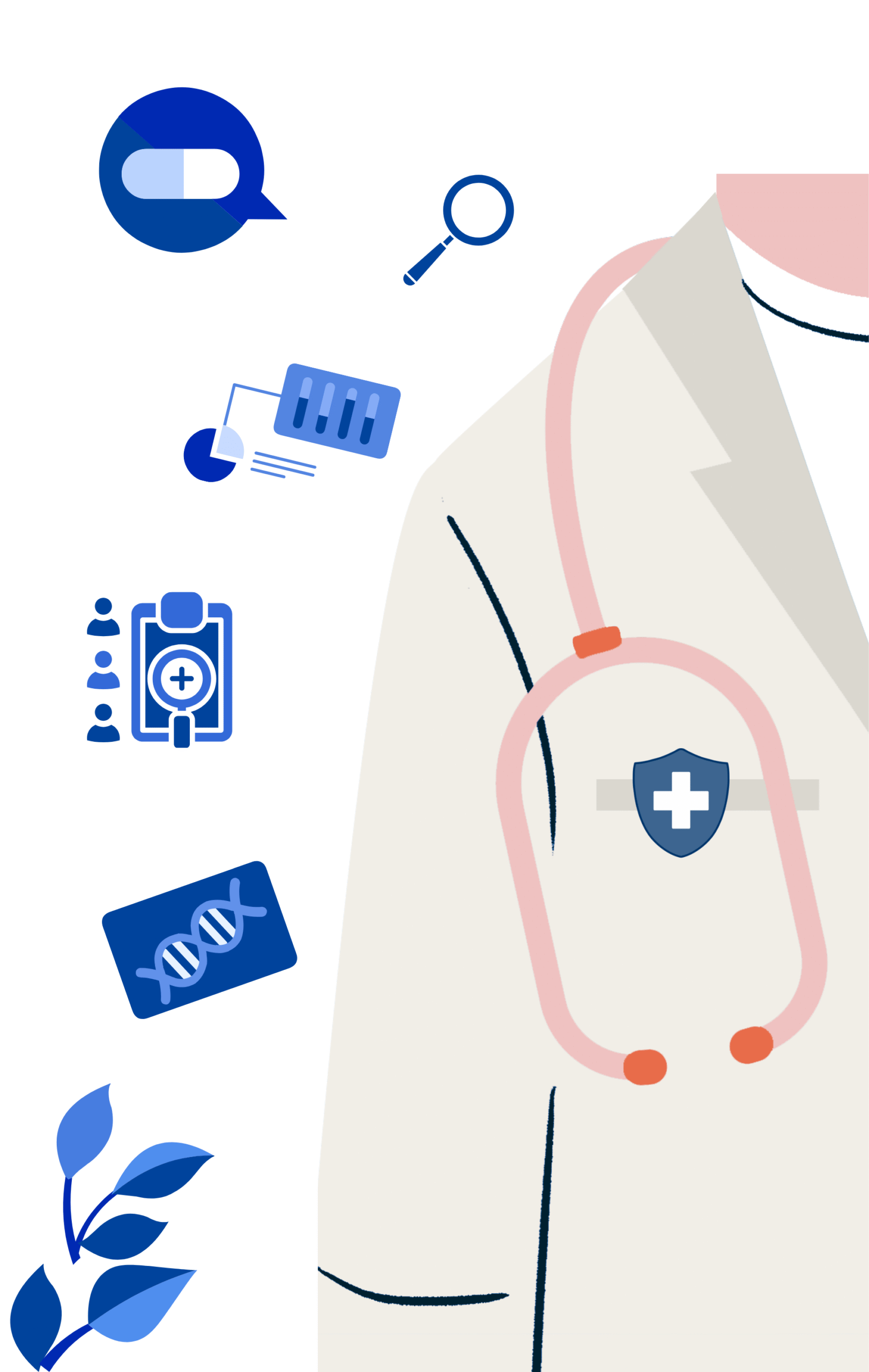Type 1 Diabetes
It is now clear that type 1 diabetes (T1D) has a preclinical phase which can last months or years. This provides an opportunity for screening and the potential for treatments to prevent or delay T1D, reducing the risk for diabetic ketoacidosis (DKA) and improving long term health.
Stages of Type 1 Diabetes
T1D starts with a combination of genetic risk factors and environmental triggers that activate the body’s immune system. In people who are genetically susceptible, this immune activation leads to the production of autoantibodies. These autoantibodies target and attack the beta cells in the pancreas. The presence of these autoantibodies is an early sign of an autoimmune reaction, even though there may be no symptoms or changes in blood glucose at this point.
T1D progresses through three stages:
- Stage 1 is defined by the detection of two or more diabetes-related autoantibodies in the bloodstream, indicating active immune attack on the beta cells. Despite this immune response, blood glucose levels remain within the normal range, and individuals have no symptoms.
- Stage 2 continues to show multiple autoantibodies, but now beta cell damage has progressed enough to cause irregular blood glucose levels, such as impaired glucose tolerance or elevated A1C. Even though blood sugar is becoming disrupted, symptoms are still not present.
- Stage 3 represents the clinical onset of T1D, with high blood glucose levels causing common symptoms. At this stage, insulin production is severely compromised, and some people may experience DKA.
Understanding these stages is crucial for early detection, intervention and prevention. Click here to learn more about the stages of T1D.

Type 1 Diabetes Risk Screening in Canada
The Canadian Population Screening for Risk of Type 1 Diabetes (CanScreen T1D) research consortium is a national collaborative initiative supported by grants from CIHR and Breakthrough T1D to assess the acceptability and feasibility of general population screening for newborns and children at risk of developing T1D. By leveraging multidisciplinary expertise, CanScreen T1D seeks to advance the development and implementation of population-level screening strategies that identify pre-symptomatic individuals through autoantibody testing and genetic risk stratification.
Join Our Integrated Network
The “Establishing an Integrated Network for Clinical Follow-Up and Intervention Trials in Canada” project aims to create the infrastructure necessary to support a nationwide T1D risk screening and intervention initiative. A central focus of CanScreen T1D is developing an integrated network of healthcare and research professionals in the field of diabetes to provide clinical follow-up and intervention trials for people at risk of developing T1D. The objective is to facilitate connections among researchers, healthcare professionals, and individuals diagnosed with T1D or at risk of developing T1D. This approach aims to streamline participation in research studies and clinical trials focused on delaying or preventing T1D.
To achieve this, we will:
- Support the infrastructure to enroll participants with multiple autoantibodies from the CanScreen T1D pilot screening program into a metabolic monitoring program;
- Establish a platform for multi-centre T1D prevention trials; and
- Build a clinical network of healthcare providers to support T1D risk screening and early interventions.
Healthcare and research professionals in the field of diabetes interested in contributing to and benefiting from this integrated network are encouraged to register their interest with CanScreen T1D to accelerate progress in T1D risk detection and prevention. Click here to fill out the form to join our integrated network of professionals.
